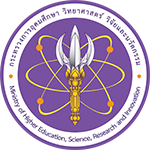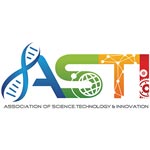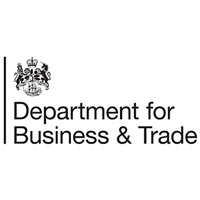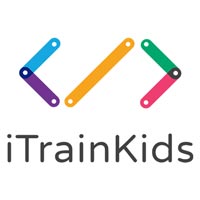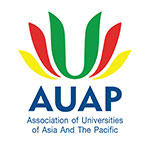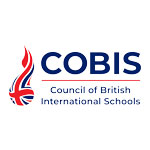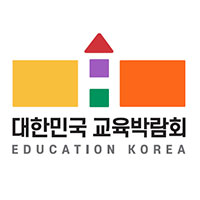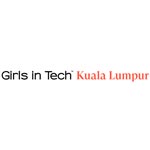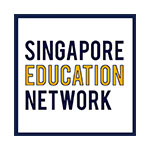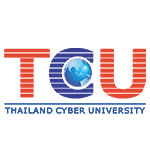Renowned education expert Prof Dr Ger Graus explains what the theme of Bett Asia means to him, and what technology’s role could be in transforming minds.
When I ask children around the world, “Why do you go to school?” 85% of the time, the answer is “Because I have to”. What if our education system was geared towards making that answer, “Because I might want to change the world”?
The theme for this year is an excellent rallying point for this kind of thinking. It encourages thinking beyond traditional ideas of teaching and learning. Instead, we should examine the strengths and limitations of our education systems, which include schooling. How can we learn from past missteps and build a strong, inclusive philosophy of education that prepares our children for the challenges of the future?
The meaning of sustainability
When it comes to transforming minds for sustainability, we need to keep in mind the broad nature of that term. Because, depending on where you are, we’re in the midst of one of the hottest, coldest, wettest or driest periods in history, we often think of sustainability as related to climate. But there are 17 Sustainable Development Goals, spanning poverty, equality, justice and more. They’re all interlinked – none of them will be possible if we don’t make progress on the others. Children and adults need to be taught to understand the problems, and even more, understand that we’re part of the solution. Activism needs to be a tangible outcome of education; we can’t rely on grades alone.
We tend to put the onus on schools when it comes to addressing this, but the responsibility needs to be shared with the wider community. Are we giving teachers the resources and training they need? Are they given the freedom to encourage that kind of critical, wider thinking? Are we creating an environment that encourages debate, discussion and understanding? We must ask ourselves hard questions and be courageous about the answers we find. When the issues we face are long term and global, national curricula and five-year parliaments are not really part of the solution we need: parochialism and short-termism go out the window.
Transforming minds is about more than what’s on the curriculum; it’s about awareness and being prepared to behave differently as individuals and as a collective society.
A collective effort
These are all big goals, and will require cooperation, small steps and patience. Students and educators today are facing major challenges: government mistrust, a growing poverty gap, inadequate resources. With all this in front of us, it can become very difficult to imagine how we can shape tomorrow.
I’m increasingly convinced that it’s community effort, not top-down policymaking, that has the most potential for impact. I'm looking at communities, NGOs and major organisations seeking solutions at local and regional level, which then knits together into something global. In this, politicians are then there to serve.
As one example, while I was working in Wythenshawe, south Manchester, we had a partnership with Manchester Airport. I asked young children there, from 5 to 7 years old, what kinds of jobs they could do in the airport in the future. They said selling newspapers, passport control, baggage handling, driving the buses to the airport. Instantly, you realise that children are building their idea of the world on what they can see, what they can point to. The job, then, was for the airport to open its doors wider and to let children see firsthand the whole range of possibilities out there, not just the 50% or so that is visible. It needed to be more than an airport. And then those children will realise they can fly. Children can only aspire to what they know exists.
And that's something that schools can do, and that children and parents can do. That is where the world of work needs to say, “look at all the things you can do”. We need to widen horizons so that children can write their own narrative of the possible. Experience is everything. This is where education becomes a partnership.
The role of technology
There is a lot of excitement around technology and its potential to promote change. But we need to be careful and honest about the capabilities of technology. It’s not a potential catch-all solution. However, what technology can do is be an incredible servant to enhance education.
Take, for example, the imaginative exercise of having dinner with anyone from history. Today, generative artificial intelligence can conjure a picture of that dinner – Einstein along with Desmond Tutu and Anne Frank; Barack Obama discussing speeches with Abraham Lincoln over a latte. Tomorrow, it may be able to reconstruct possible conversations between these towering figures. Put that in the hands of a great history teacher and imagine what magic they could create with and for students.
Another way technology could advance education is connection. In many ways, we are living on a very small planet. While we’re all connected, we still have distinct national curricula, where we live on isolated islands, and our schooling systems compete with one another to see whose is best. Faced with global problems, this isn’t the way forward. The connectivity technology provides could and should allow greater elements of internationalisation and international understanding and international empathy. Nothing is more powerful than the connection between people.
However, for all its potential and wizardry, we must always hold in mind that the happiest day for many children in 2020 was when schools reopened after the pandemic and when they were able to go back together with their friends and teachers.
Technology is a powerful, excellent servant to education and schooling, an amazing supplier of awe and wonder, but must be used as a tool to enhance learning and teaching in the hands of magical, irreplaceable teachers. This way we can do better and more, and send sparks flying.
About Professor Dr Ger Graus OBE
Professor Dr Ger Graus OBE is a world-leading figure in education. He was the first Global Director of Education at KidZania and, prior to that, the founding CEO of the Children’s University. Ger is a frequent keynote speaker at some of the world’s leading education conferences, including Bett, TEDx, and the Women’s Economic Forum.
Ger has received numerous accolades throughout his career, including an Honorary Officer of the Most Excellent Order of the British Empire (OBE) for services to children (2014), the Global Education Leadership Award at the World Education Congress in India (2018) and in 2023, he was made a Companion of the Harry Volker Genootschap in The Netherlands.
For further information please visit: www.gergraus.com.
For more insights on EdTech, book your ticket for Bett Asia here.

.png?width=423&height=100&ext=.png)





.png?ext=.png)

